CSIR-IIIM, JAMMU
CSIR–Indian Institute of Integrative Medicine (IIIM), Jammu kick-started a 5-day Skill Development Programme on Sustainable Aromatic Agriculture and Value-Added Product Development under Aroma Mission Phase–III. The training aims to equip farmers, entrepreneurs, and rural youth with practical knowledge and hands-on skills related to the cultivation, processing, and value addition of aromatic crops. Experts from CSIR–IIIM are leading the sessions, emphasizing sustainable practices, improved agrotechnology, and entrepreneurship development to boost income generation through aromatic farming.
Day 1 Inauguration:
The 5-day Skill Development Programme on Sustainable Aromatic Agriculture under CSIR-Aroma Mission Phase–III was inaugurated on July 15, 2025 at CSIR–IIIM Chatha Farm, Jammu. The inaugural session highlighted the objectives of the Aroma Mission, the role of CSIR–IIIM in promoting aromatic crop-based livelihoods, and the importance of sustainable practices. Participants were welcomed and briefed on the training.
The event was jointly inaugurated by Dr Zabeer Ahmed, Director of CSIR-IIIM, Jammu, Dr Sanjeev Khosla, Director, CSIR-IMTECH, Chandigarh and Dr Sudesh Kumar Yadav, Director, CSIR-IHBT, Palampur at its experimental Farm Chatha, Jammu. The inaugural day witnessed participation from progressive farmers, women-led SHGs, and stakeholders in the aroma sector. The programme is a part of the national-level mission being implemented by 11 CSIR laboratories, with CSIR–IIIM as the key institute known for Lavender cultivation.
The inaugural session featured technical sessions, a live demonstration of essential oil extraction and a value-added product display. Farmers and SHG of women from Phly Mandal, and Old Satwari participated in the inaugural day. During the five-day programme, participants will be trained in techniques for product development and post-harvest processing, with a special emphasis on women-led innovation and rural enterprise. Dr Sanjeev Khosla highlighted the importance of connecting scientific research with on-ground agricultural needs.
Dr Zabeer Ahmed emphasized the institute’s continuous efforts to support farmers under the guidance of the Government of India and the Ministry of Science and Technology, led by Minister Dr Jitendra Singh. CSIR–IIIM is now planning to initiate a long-duration advanced programme specifically for women entrepreneurs in the aroma sector, he added. Dr Sudesh Kumar Yadav stated that the success of any national-level mission depends on how effectively local farmers implement it for their livelihood and community well-being.
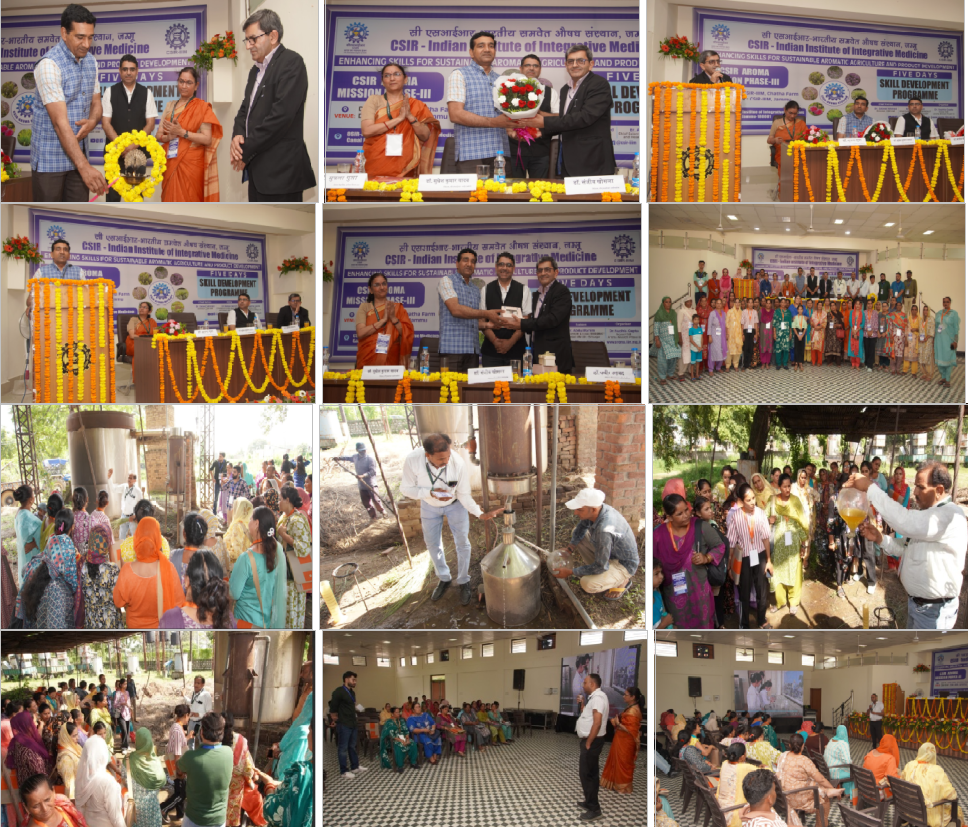
Day 2: Technical Session, Field Visit & Plant Distribution:
The second day of the 5-day Skill Development Programme at CSIR–IIIM Jammu under Aroma Mission Phase–III was marked by intensive technical learning and practical exposure. Experts from the institute delivered detailed sessions on key topics such as advanced cultivation techniques, post-harvest processing, and strategies for developing value-added products from aromatic crops. The sessions covered advanced agrotechnology, best cultivation practices, and value addition techniques for aromatic crops. Following the lectures, a field visit was organized to provide participants with practical exposure to model aromatic plantations and distillation units. A special focus was given to soil analysis, where participants were introduced to the importance of soil testing in aromatic crop cultivation. They learned how to assess soil quality, interpret soil reports, and make informed decisions for optimal crop performance. Additionally, quality planting material (QPM) of selected aromatic crops was distributed to the participants to encourage hands-on cultivation and adoption of improved varieties.
The day’s activities significantly enriched the participants’ understanding of both scientific and field-level aspects of aromatic agriculture, aligning with the mission’s objective of building skilled, self-reliant rural entrepreneurs. The day provided valuable exposure to both theoretical and practical aspects of the aromatic sector.
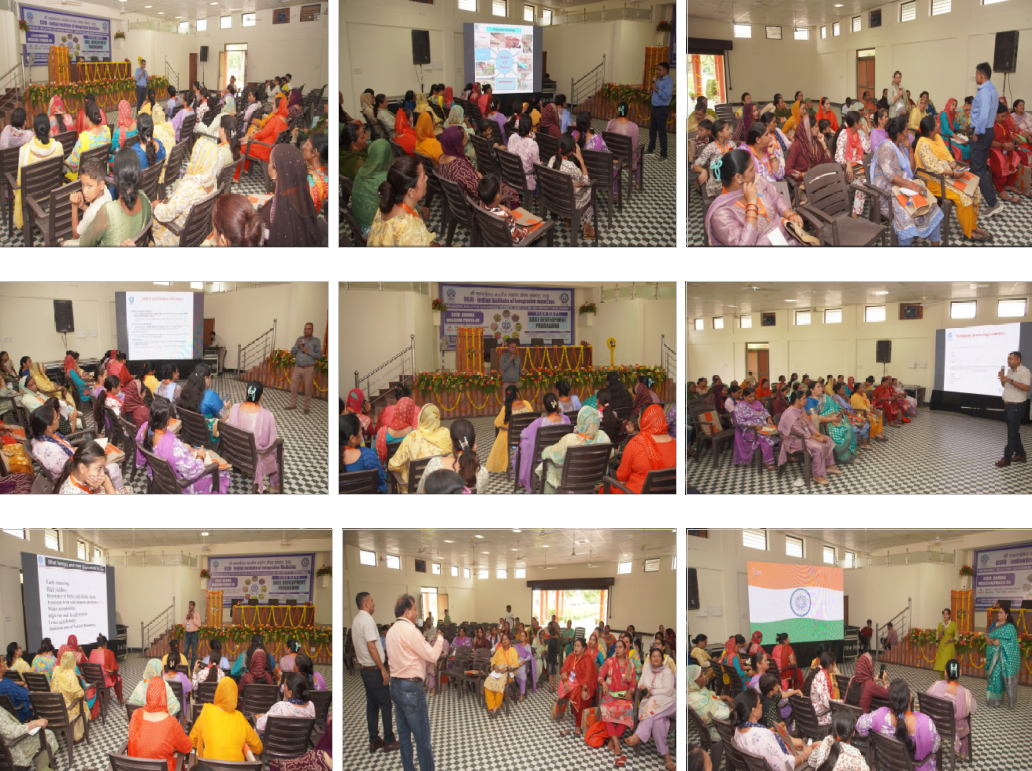
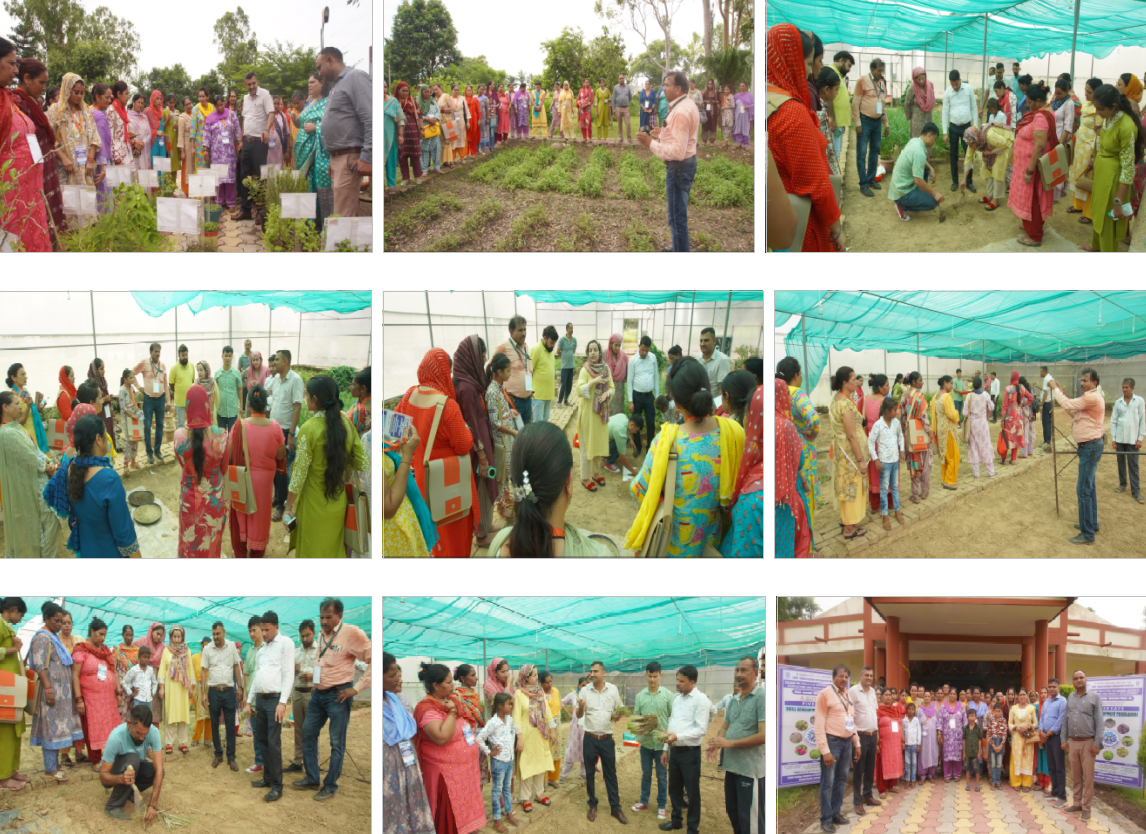
Day 3 – Agarbatti and Dhoop Making Training:
On the third day of the 5-day Skill Development Programme under CSIR-Aroma Mission Phase–III, participants received hands-on training in Agarbatti and Dhoop making using aromatic plant based raw materials. Earlier in the day, Dr. Suphla Gupta, Nodal Scientist of Aroma Mission–III, addressed the participants and provided a comprehensive overview of the Aroma Mission, its key objectives, and its role in transforming rural livelihoods through sustainable aromatic agriculture and product development. The session focused on the formulation, blending of natural ingredients, and techniques involved in preparing high-quality incense products. Experts from CSIR–IIIM Jammu demonstrated the complete process from mixing and rolling to drying and packaging emphasizing the scope of value addition and entrepreneurship in the aromatic products sector. The hands-on session aimed at enhancing participants’ skills in developing value-added aromatic products using essential oils and natural ingredients. The session aimed to empower farmers, women, and rural youth with practical skills to create marketable aromatic products, promoting entrepreneurship and livelihood generation through small-scale aromatic enterprises.
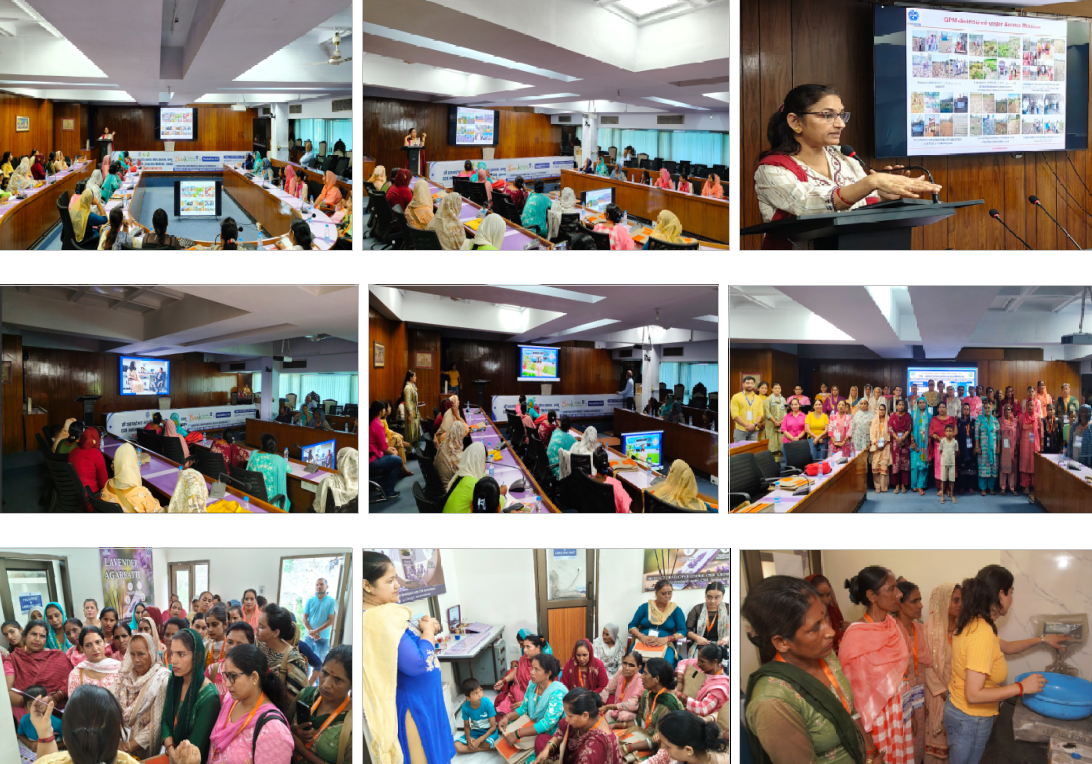
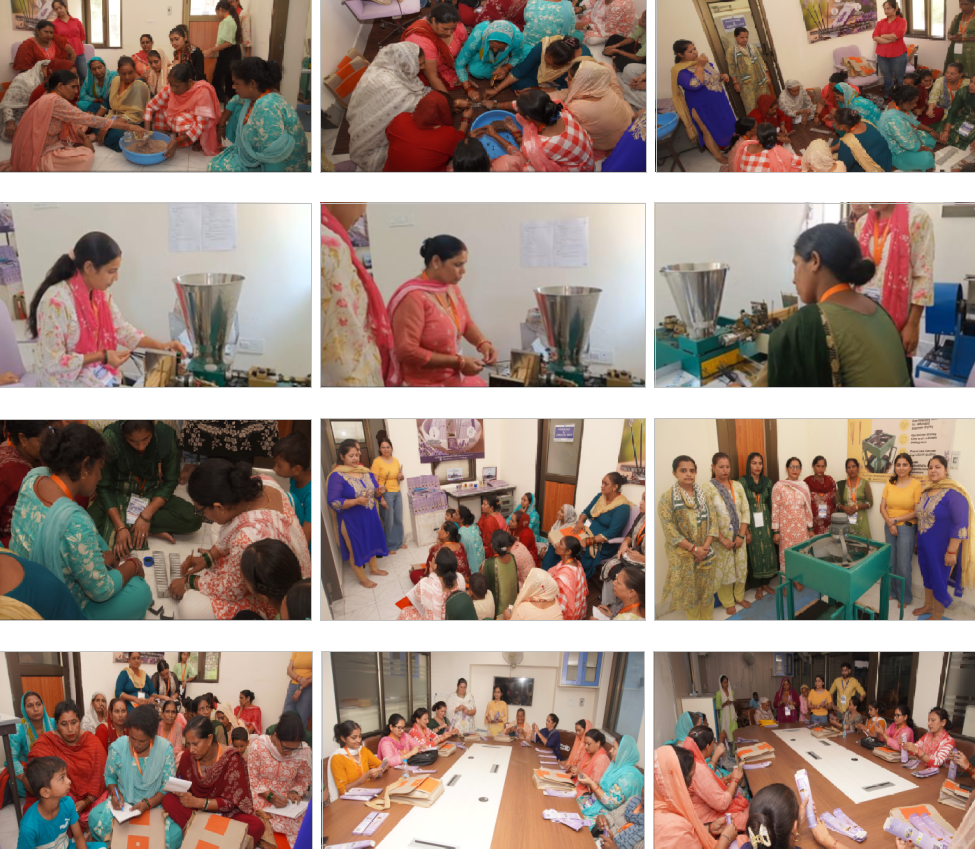
Day 4 – Candle Making and Agarbatti Packaging Training:
On the fourth day of the 5-day Skill Development Programme at CSIR–IIIM Jammu, a dedicated candle-making session was conducted, focusing on the use of aromatic oils in value-added products. Participants were trained in the preparation of scented candles, including wax selection, fragrance blending, molding, and safe handling techniques.
The session emphasized creativity, quality control, and small-scale business potential in the aromatic candle industry. This hands-on training aimed to equip participants with practical skills to develop their own aromatic product lines, enhancing self-employment opportunities in rural and semi-urban areas.
In addition, participants were introduced to the packaging of agarbatti (incense sticks), where they learned essential skills such as proper labeling, bundling, and aesthetic presentation to enhance product appeal and shelf life. This component aimed to strengthen market readiness and branding for locally made aromatic products.
Together, these sessions empowered participants with the knowledge and skills to launch or expand their own aromatic product lines, contributing to income generation and sustainable livelihood development.
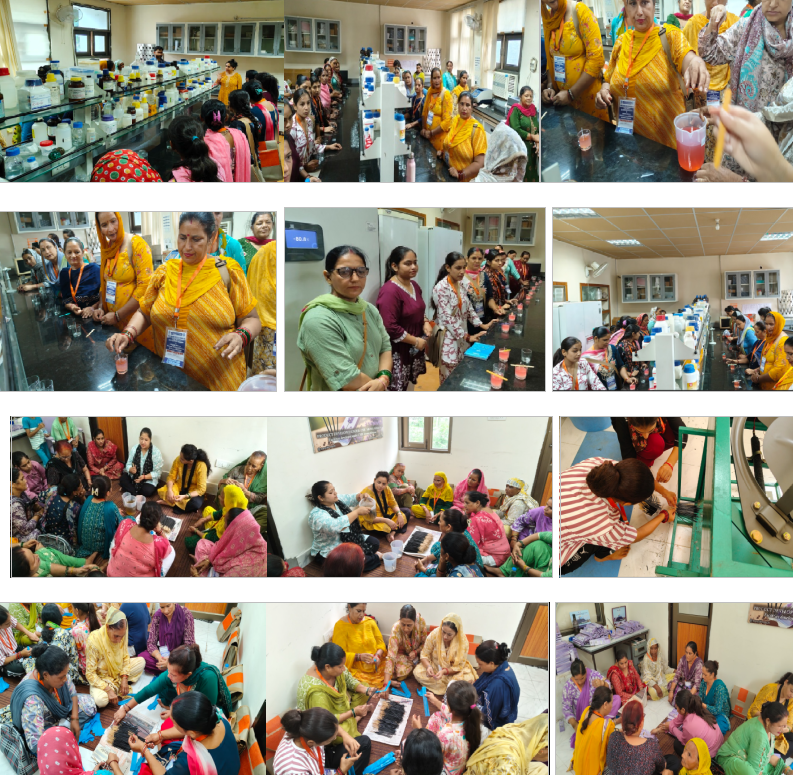
Day 5 – Valedictory Session:
The fifth and final day of the 5-day Skill Development Programme under CSIR–Aroma Mission Phase–III at CSIR–IIIM Jammu concluded on July 19, 2025 with a Valedictory Session. The session was graced by Dr. Zabeer Ahmed, Director-IIIM was chief guest and Abdul Rahim, Head Srinagar Branch of CSIR-IIIM along with Dr. Suphla Gupta, Nodal Scientist, Aroma Mission were in presidium. Earlier Dr. Suphla Gupta shared the detail of the technical and live demonstration and hands on training session conducted during the last five days. More than 100 farmers including SHG of 40 women from Mandal Phallain and old Satwari participated in the initiative promoting science-based rural development and empowering women through inclusive, skill-based programmes in aromatic sector. Speaking on the occasion, Dr. Zabeer Ahmed announced to install free of cost the incense sticks making machine in the women farmers cluster enabling them to impart further trainings and start their small businesses at their places. He also offered incubation support to upcoming women Agri-stratup and expressed hope that they would use the opportunity to spread the knowledge within their areas, thereby becoming agents of change and inspiration for self-reliance to other women in their area, who appreciated the active participation and enthusiasm of the trainees throughout the programme. A handout stated that the participants were given hands-on training on aroma candle making, incense sticks making, basics of perfume making and packaging of handmade aroma products. The concluding day also featured an interactive session, where all dignitaries interacted with the women participants, addressing their queries and offering guidance on practical implementation of their learning to emerge as start-up.
Participants shared their feedback and experiences, highlighting the knowledge and skills gained in aromatic crop cultivation and value-added product development. The programme concluded with the distribution of certificates to all women participants as a mark of successful completion of the training.
The programme concluded with a note of encouragement, motivating the participants to apply their learning in the field and explore entrepreneurial opportunities in the aromatic sector.
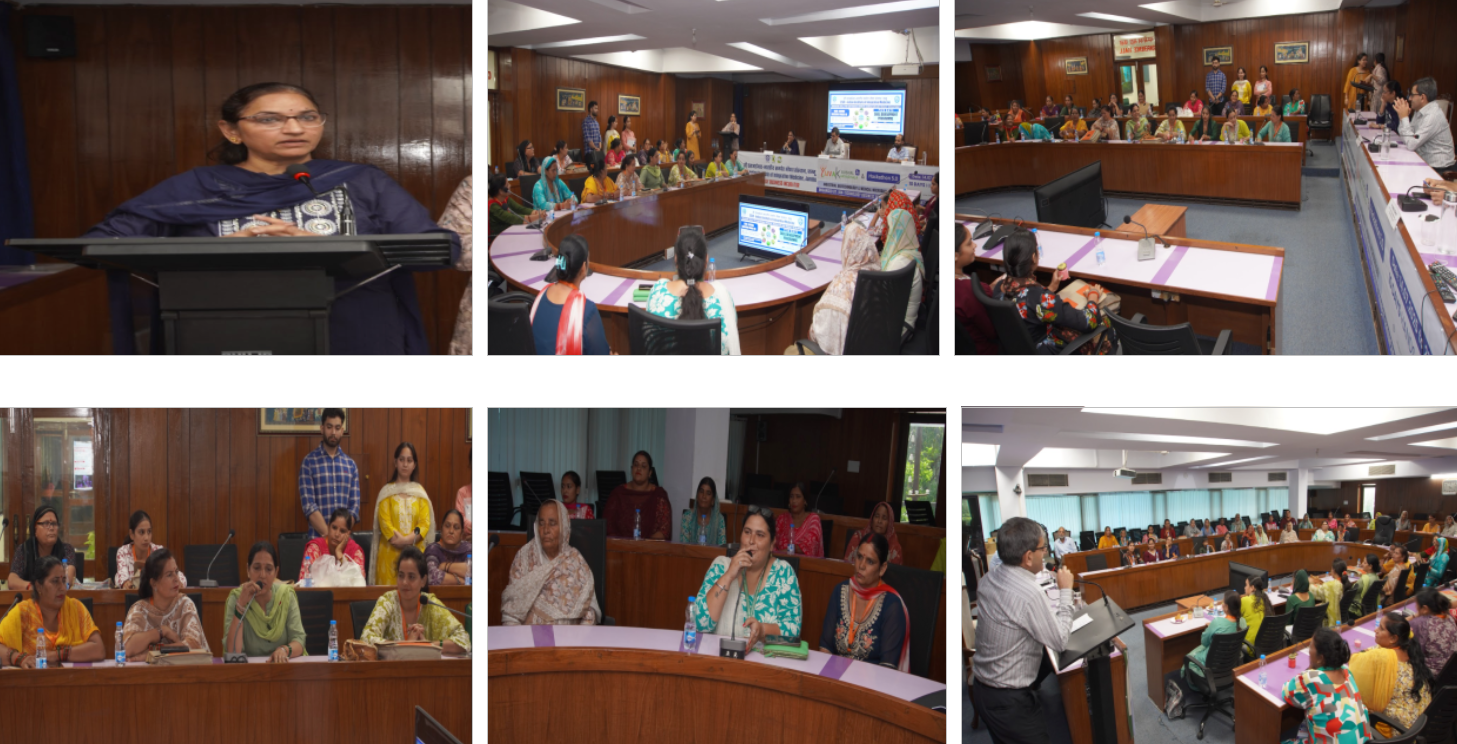
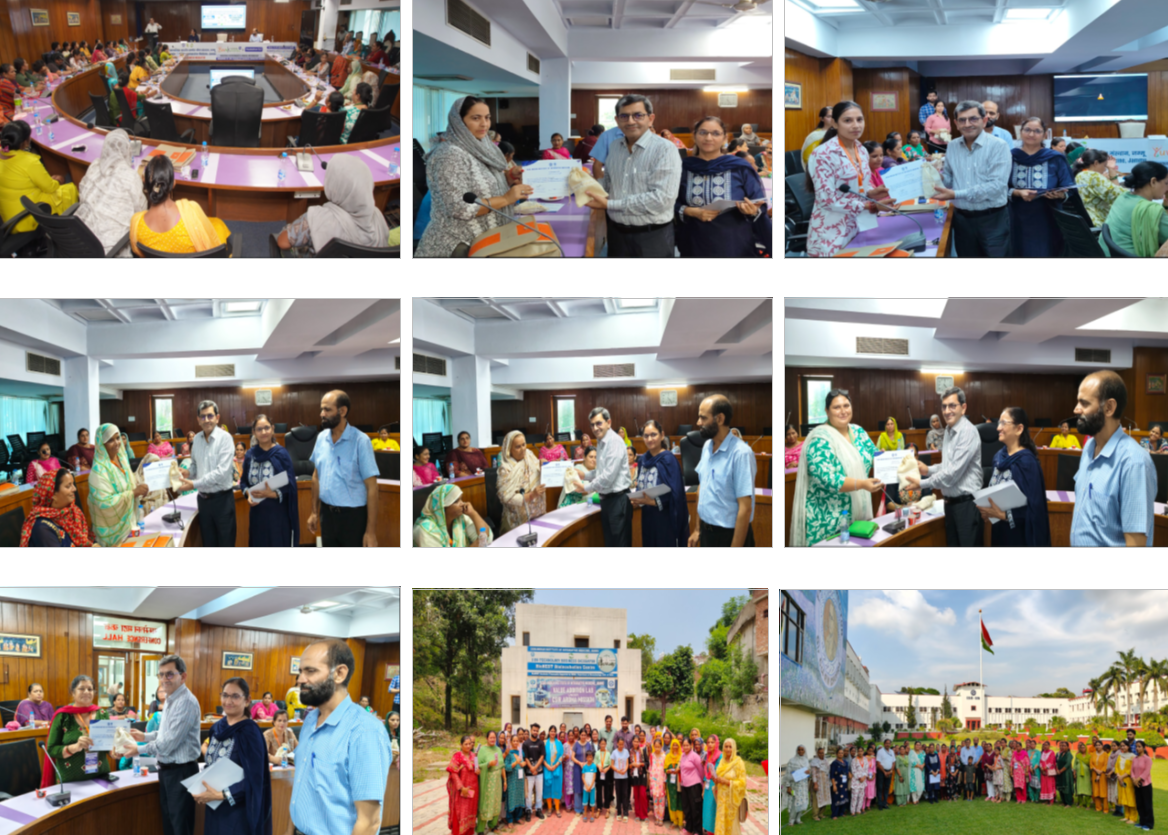

English Hindi Urdu-
Twitter
-
Facebook